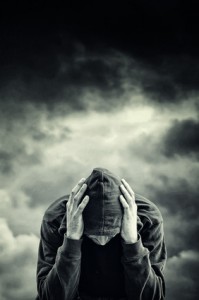Indictment by Maurice Decaul
Women walked up to beg
help, to share images
of loved ones, hoping maybe
we had seen their boys & men.
Once a woman brought a baby
balled up in a sheet
she said “you” bombed out the city
lights, that “I” was cooking in darkness
that “my” child’s misfortune
is because “you” are here.
We stood together a moment.
Iraqis have told me: since Saddam
is dead, the killings were just
& maybe this is true, for a few
but not her. Not for me.
At two different Warrior Writers workshops I listened veterans speak and write. Some were home less than a year and others talked about being spit on when they returned from Vietnam forty plus years ago.

Those of us who have been touched by veterans and war were also invited to share.
We got to have intimate conversations about war, trauma, loss and resilience. We got to share insights about moral injury, re-entry or feeling invisible.
Together, we wrote, listened and made connections and art. Together, we were able to consider the perspectives of one another.
Daughters shared the questions they wanted to ask their veteran fathers who are silent or silenced or dead.
One veteran said he never thought about the impact his war experience might have on those he loves.
Veterans could say they don’t always want to talk or share, don’t always believe people really want to listen, fear others consider them whiners or just feel more comfortable quiet or with other veterans.
Some veterans admitted that they don’t always know if it is others or themselves they are protecting, as though memories are like bombs that can still detonate and do damage shooting debris and injuring moments or relationships.
Some admitted to being desperate for information while trying to respect privacy of their loved ones.
War is brutal and who owns responsibility for that brutality?
War bonds and can create beautiful relationships.
Veterans can love and hate different aspects of their service.
We asked each other and ourselves why people look away from war and trauma and the experiences of veterans. How do we distance ourselves from our own experiences, the experience of others, actions of our government that we don’t always agree with?
How do we deal with the fact that our discomfort with listening, understanding or appreciating the veteran experience (which lasts long after time is served) is conveyed as shame, judgment, ignorance or insensitivity?
If we say veterans are heroes but then let them languish when they have physical, emotional or other issues what good are our words and labels?
Is it possible not to think about bigger issues such as addiction, homelessness, post-traumatic stress, physical disabilities and homelessness without considering the veteran experience?
No one was pushing politics or any particular agenda.
How we have felt or feel about war or military service now or in the past was not up for debate or consideration. Not really.
No one was trying to persuade or convince anyone of anything but only sharing words and experiences, raw and unrehearsed.
We gathered to share stories.
We gathered to make sentences.
The facilitator, Rachel McNeill shared a quote translated by Coleman Barks by Rumi.
We listen to stories
to be cured.
The one listening
is the patient.
I listened to men and women veterans in their twenties and in their sixties.
No one was in uniform. Some were joking and others shy. Some were with spouses and others pushing baby carriages. Some were dressed in ironed oxfords. All veterans. None I would have recognized as veterans if I had passed them on the street.
I learned that they can always spot and see each other and often seek one another out.
Veterans listened as some non veterans talked about marriages that didn’t survive, fathers who didn’t parent or return as anyone recognizable to their loved ones, about non veterans who uses words like casualties and collateral damage when talking about how altered family life has been. No one meant to diminish the true meaning of M.I.A. or K.I.A. and there were people who lost family members in service. But for spouses and family members of veterans, some wounds and injuries ripple, still ripple.
Writing opens up hearts and brains and poses questions that are invited as company to linger within.
Questions, sometimes for the first time, were voiced.
Answers were not required.
Closure was not even attempted.
How often do you talk or think about war and the veteran experience? Honestly, until recently, I thought about it very little.
My heart was ripped open not only by veterans but by women in their 30’s and 40’s and 50’s with PTSD or loss or traumas having nothing to do with “shell shock” or war.

People nodded heads when talking of sitting in chairs close to the door and paying attention to exit signs and expecting chaos or danger at any moment. Not all were veterans.
Some emotions and experiences are universal.
But not all of them.
Some are precise and particular. Being spit on or learning to get used to bombs without reacting and flinching all of the time.
There are smells and sights and insights and relationships that are not vague. Tastes or sounds. Searing. Images or limbs. Mind shattering – stretching the bounds of imagination with reality.
There are some people who choose their silence and do not want to give up their words.
Others will wait and only divulge details if they feel safe and welcome and even then, maybe never or only in their own time.
It was impossible not to inhabit, at least momentarily, the experience of others and to feel expanded, touched and sometimes hollow and aching.
We sipped each other in like coffee. We took home experiences like the pineapple, melon and strawberries we bagged up before leaving.
It is powerful and miraculous to me always that something as simple as black marker on lined white paper, done together, creates intimacy, openness, truth-telling and healing. I do not understand why we don’t do this practice of writing together more often, where we are not bound by conventions of conversation, the need to react or say something.
Sometimes people just need to be heard and to tell their story.
Sometimes people just need to stay present and listen.
That can be all of the magic.
Rachel McNeill, from Warrior Writers in Boston is a veteran, writer and facilitator who creates a safe and comfortable environment with seeming ease and subtlety. She shares the power of storytelling by getting people to participate in the process. She doesn’t sell it hard because she doesn’t need to. People do it, experience, feel it and know the benefits.
McNeill works with homeless veterans, veterans in recovery, student veteran groups. She shares all of the resources and contacts she knows generously and promotes the concept of writing as a vehicle of expression and healing for all. She is inspiring.
And the entire the team from Bridgewater State University, Margaret Bellafiore (Art), Dr. Suzanne Ramczyk (Theater & Dance), Marlene DeLeon (Catholic Campus Ministry), Dr. Victoria Bacon (Counselor Education), Dr. Louise Graham (Counselor Education), Dr. Carolyn Petrosino (Criminal Justice) and John Bibler, III (BSU Veterans) are so warm, kind, thoughtful and hard working.
They are educators, advocates, professors, caretakers of hearts who made sure people felt heard, got fed and were encouraged to own their total life experiences. They all have their own regular full-time work and lives but came together to try to find new ways to reach student veterans as well as local veterans and military personnel. They spent time on weekends and evenings and are still brainstorming ways to reach more veterans on campus and in the community.
The women from Spin a Yarn Weave a Life are Catherine Tutter and Cheyenne McCarter and they have worked with diverse groups of people to literally show how stories and art can be turned into yarn. The transformational power of making art from life stories is literal and beautiful.
Together, they all have and are creating events and art to honor, recognize, celebrate and consider the experiences of BSU Veterans, local military people, friends, family and loved ones of veterans.
In fact, if you know any local veterans or student veterans, please share the upcoming events at Bridgewater State University with them. They might be changed. You might be changed by listening.
The details, taken from Bridgewater State University website are below.
Warrior Writers Writing Workshop: Thursday, April 3, 5 to 7 p.m., Catholic Center. Veterans and BSU alumni in the local towns are invited to learn techniques for composing a story or other written literary piece about some slice of their military service or return to civilian life.
Spin a Yarn, 2nd Session, Monday, April 14, 5-7 p.m., Catholic Center. Artists Catherine Tutter and Cheyenne McCarter will teach students and veterans to create and artistic textile from their writing.
Video or Audio Recordings for Library of Congress Veterans History Project. By appointment throughout the semester or summer, prepare and record a 15 to 30-minute segment that will become part of the special collection in the Library of Congress and BSU’s Maxwell Library. Dr. Louise Graham will facilitate these recordings.
Laboratory Theatre, Art Installation , Nov. 19-23, 2014, BSU Campus. An original theatrical piece capturing veterans’ stories, written by Dr. Suzanne Ramczyk and performed by the BSU Laboratory Theater. Artwork by, about or from the military life of our local veterans will be on display.
, Nov. 19-23, 2014, BSU Campus. An original theatrical piece capturing veterans’ stories, written by Dr. Suzanne Ramczyk and performed by the BSU Laboratory Theater. Artwork by, about or from the military life of our local veterans will be on display.
You Matter Mantras
- Trauma sucks. You don't.
- Write to express not to impress.
- It's not trauma informed if it's not informed by trauma survivors.
- Breathing isn't optional.
You Are Invited Too & To:
- Heal Write Now on Facebook
- Parenting with ACEs at the ACEsConectionNetwork
- The #FacesOfPTSD campaign.
- When I'm not post-traumatically pissed or stressed I try to Twitter, Instagram & Pinterest.
[…] https://healwritenow.com/vets-speak-warrior-writers-1/ […]